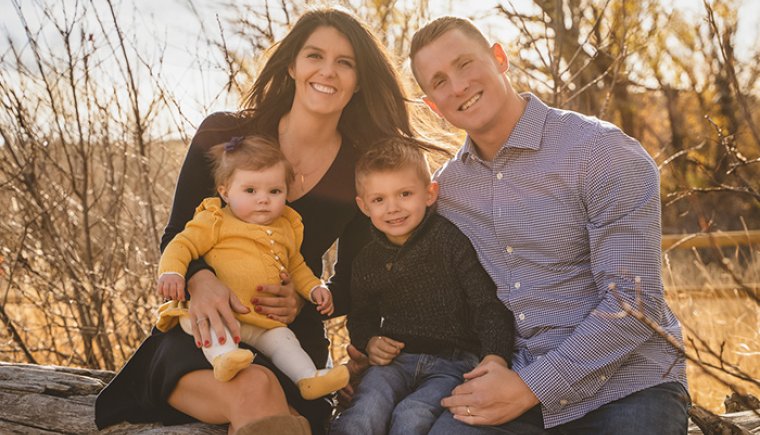The Road to Reunification: Defending Families in Cour

Andrew Poland’s passion for helping families was instilled at a young age as he spent afternoons after school sitting in the back of courtrooms while his mom and dad – both public interest attorneys – finished up their cases. His parents’ dedication to serving families involved in child welfare cases ultimately led Andrew to law school and then on to establishing his own practice in Lakewood, Colo. focused on child welfare and juvenile defense litigation. In the 10 years since Andrew has represented parents in more than 500 dependency and neglect (D&N) cases throughout the Denver metro area.
“I love what I do,” said Andrew. “I am thankful every day that I get to work with parents and children who are all too often marginalized and exploited by our justice system. It is best for children to be raised by safe and healthy parents, and I am proud to play in a role in the reunification of families.”
Andrew is appointed to represent parents through the Office of Respondent Parent Counsel (ORPC). From Andrew’s perspective, he has an opportunity in each case to help disrupt unhealthy generational cycles of domestic violence and substance abuse when those issues are present. The formation of specialty courts is an exciting development towards that end.
Some of Andrew’s clients participate in the Adams County Family Treatment Court program, which specializes in reuniting families that have been separated due to substance abuse. The court provides additional resources for parents to help them address their substance use disorder and create a safe and healthy environment so their child/ren can return home to be raised by their parents. The success Andrew has witnessed his clients achieve through this program is possible because of the unique, structured approach this program takes.
A recent case has demonstrated how valuable this model can be. Andrew was appointed to represent a mother suffering from a long-term, daily heroin addiction. Through the Family Treatment Court program, she was able to get into a residential treatment program and then transition to a sober living community. From there, she was allowed overnight visits with her child and a return home now appears imminent. Andrew believes the case would have ended in a termination of parental rights were it not for the specialty court program. “The program does not take a one size fits all approach,” Andrew said. “It looks at the needs of each participant and then tailors a treatment plan to meet those needs.”
Andrew was also one of the original respondent parent attorneys in the Adams County Indian Child Welfare Act (ICWA) court. This specialty court brings a cultural component into cases where a parent or child is identified as having Native American heritage. The program focuses on the family’s culture and works to ensure it is respected throughout the court process. The ICWA Court hearings leverage tribal court specialists, Native American resource centers, social services and attorneys for the children. Adams County started the fifth ICWA court in the country in 2015, and Andrew was selected by the judge to be a part of that original team. He has seen families he’s worked with in ICWA court achieve great outcomes thanks to the tailored approach.
In a typical day, Andrew attends multiple hearings, drafts motions and orders, participates in family team meetings and reviews court reports in preparation for upcoming hearings. He also regularly communicates with his clients to ensure they are meeting their obligations to the court, themselves and their child/ren. Andrew believes that frequent communication is the cornerstone to developing an effective attorney-client relationship.
“Of all the cases I have worked on over the years, the parents who are successful at overcoming adversity and reuniting their families all have one thing in common,” said Andrew. “When a parent is willing to accept help – engage in their treatment plan and lean into the services being offered – the process can truly work.”
This work has had a big impact on Andrew over the past 10 years, and his personal life has strongly influenced his work as well. Two events, in particular, stand out for Andrew. The first was the birth of his children. Becoming a father to his two young children changed Andrew’s perspective and amplified the importance of this work and of the parent-child relationship. The second moment that has shaped how he practices was when his brother passed away from a heroin overdose. That experience reframed how Andrew talks to clients who are facing substance abuse issues. “I try to think about what I would say to my brother if he were in their situation,” said Andrew. “What would I want an attorney to do for him? And then I try to do that for my clients.”
More Posts







